#japanese language learning tips
Text
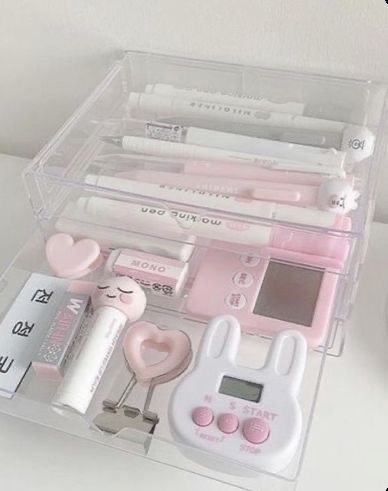
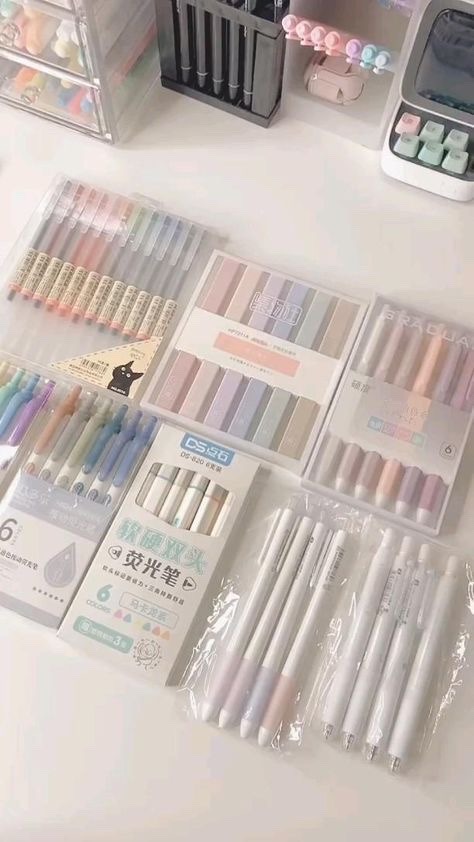
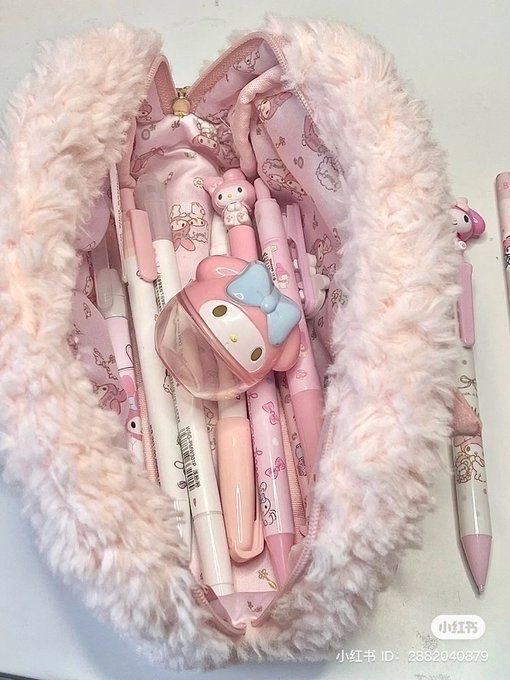
Current Japanese Study Routine + Resources 🎀
As you all may know, I am currently self studying Japanese and Spanish, though I am putting Spanish on the back burner for now so I can focus more on Japanese as that is where my passion lies at the moment. Lucky for me, there is a Japanese language and culture club on my university campus that I am (hopefully) going to join next week or the week after, given how busy my schedule ends up being. I thought I’d make a little post about my current routine that I use to study and what resources I am currently using and am planning on purchasing to use in order to build my proficiency in this beautiful language!
Current Resources 🩷
Apps - I am currently playing around with several apps to see which ones work for me, so here is all the apps I currently have downloaded to my iPad/phone
Duolingo - this has been a go to for all language I’ve ever tried to learn, it’s useful for me as a basic introduction to vocabulary, sentence structure, some grammar, and I just like how it involves typing, speaking, listening, and reading.
Drops - this one is just a fun little 5 minutes gamified way to learn vocabulary for me, it’s definitely a go to on my lazier language learning days
Bunpo - I like this for learning the kana but I didn’t realize it costs money to use fully so I am debating purchasing a subscription to the paid version
Write Japanese - this one I’m using to learn the correct stroke order for the kana and I like it for the most part
Renshuu - I just signed in to use this one last night and it looks interesting. I’ve seen it recommended by several blogs and even when google searching language learning and watching YouTube videos so I’m excited to try it out!
NHK for School - I saw someone recommend this on their blog and I remember using the website version in the past so I know this will be helpful when it comes to reading
Jisho - this is a dictionary app that I’ve seen recommended on so many platforms and I’m always open to a good dictionary!
Japanese - this one was recommended on a blog post and it allows you to add vocabulary and interesting phrases so I thought it’d be useful once I start on learning sentence structure and grammar
Italki - this one is the one I’m most excited to use. It connects you to people who speak and teach your target language for a set timed lesson, and it does cost money but you pay by lesson, not on a subscription basis. So if you do one lesson the first week and then another lesson in three weeks or something, you only pay for those two lessons. I’m really looking forward to trying this one out in the future once I get more comfortable with speaking.
Anki - a flash card app I am using to currently learn hiragana and will soon use for katakana and eventually kanji and phrases. I was gonna use Quizlet but I ended up liking this one better for my current needs.
LingoDeer, Memrise, Babbel, HiNative, HelloTalk, Hey Japan, Busuu, Kanji, Kana, Sensei - apps that I have and have not tried yet. I really like the ones I’ve already tried so I’m not sure if I’m going to use these ones soon but if I get bored of current apps than I at least have alternatives to turn to to continue learning
Textbooks/Workbooks/Materials - I currently own two workbooks but will include the resource I am planning on buying, as well as any stationery material I am also using!
Japanese for Busy People I - This was the workbook we had for the Japanese class I took at my university while in high school. My dad ended up buying it for me if I promised not to take Japanese classes once I went to college. (My parents don’t believe it is useful to know and they are helping pay for my education so I didn’t have a choice.) I haven’t started reusing it yet but once I am comfortable with the kana then I will resume using it.
Let’s Learn Katakana - this is a katakana writing book my older brother bought for me (he is supportive of everything I have an interest in even if he doesn’t understand it himself) and it is really useful for learning and practicing writing katakana. However I am still focusing on relearning hiragana so I will return to this workbook after I solidify my hiragana knowledge.
Genki I and Genki II textbook/workbook + answer key bundle - I am planning to buy this off of Amazon as I have heard from most people who are learning Japanese on their own that this set is really useful for self studying so of course I am going to invest in it once I get paid next week.
I am also looking for a hiragana, katakana, and kanji writing workbook to practice those skills.
Free Online Resources -
YouTube!
Anime!
Music
Manga
Anything free I can find online when google searching resources
Stationary Supplies -
Kokuyo Campus Smart Ring Binder in pink
Tombow Fudenosuke Brush Pens in black
Index cards
Pilot g-2 fashion pens
Zebra mild liner highlighter/markers
Papermate Mechanical Pencils
Mini notebook to carry around for vocabulary
My iPad + Apple Pencil + Goodnotes 5
My Chromebook
A lot of resources but I am trying to stick with this for the long term. A few years ago, I self studied Japanese everyday for about 2 years and gained a good understanding but fell off from studying Japanese when I went to university.
My Current Study Routine* 🎀
*when I have more than 30 minutes to study, if I only have 30 minutes or less I just mess around on my language apps
I currently do not use any workbooks or textbooks as I am trying to re familiarize myself with the language. Here’s my current study routine!
Practice Anki flashcards 3 times or until I get 85-90% correct
Practice hiragana writing in Write Japanese app (~10min)
Duolingo lessons for 10 minutes
1 Japanese language Drops lesson
Use Renshuu until I get bored (~10-15min)
Watch an episode of anime as a reward (Japanese audio with English subtitles)
I will switch this up to a more structured way of studying once I start using my textbooks and workbooks, but for now this relaxed style of learning is working for me time wise and attention wise (ADHD brain right here).
I also listen to Japanese music throughout the day and try to recall hiragana characters correctly in my head when I have the time. I also sneak in some practice when at work on my apps and whatnot. I mentioned in my last daily check in some of my favorite Japanese artists, and I also love Japanese versions of K-pop songs too! I’m currently watching Bungou Stray Dogs on crunchyroll right now, and I’m open to any recommendations for what to watch next!
If anyone has any language learning tips or resources they’d want to share, feel free to comment! It would be greatly appreciated!
Til next time my lovelies 🩷🤍
#pink pilates girl#pink pilates princess#self care#self development#self love#wonyoungism#health & fitness#mental health#it girl#physical health#japanese language learning tips#language learning tip#language resources#language learning tips#language learning#langblr#studyspo#college studyblr#vanilla girl#green juice girl#coquettecore#college study tips#coquette girl#study tips#studyblr#studyinspo#foreign languages#language tips#pink academia#pink blog
196 notes
·
View notes
Text
Look, I knew five languages by age 19 and now I am learning like 3 more. I work as a language instructor and a consultant. If I can give language learners only one advice, this is it.
STOP LEARNING WORDS ON THEIR OWN.
You're doing yourself a disservice by learning lists of "30 words you must know!" "100 most common words!" like it literally means nothing if you cannot use those words in an appropriate context with proper grammar. So what you actually need to do is learn those words via example sentences.
Of course, sentences have more words so you may think you're learning less but you're actually learning the way to use it in context. That's what's important.
Language is about communication, which also means if you want to learn languages, you have to observe how people communicate with each other universally. Native speakers never have a list of words they know and they don't count every single new word they've learned. So why are you doing it to yourself? What native speakers do is listen to the new word, remember the context they're spoken in, and keep using that word in that context. And that's why people go "wait, you can use that word LIKE THAT?" all the time. So you, a language learner, are also allowed to do that. I'm not even saying those word lists are useless but they're the most useful AFTER you've known most of them and are trying to go over them for practice etc. Native speakers do click on those word lists to check out how many words they don't know or to remind themselves of those words or to learn some facts about each word. That should be your goal as well.
Learn sentences. Learn them in context. Do not fall into the "I must know xx amount of words or I'm a failure at language learning" trap perpetuated by bloggers or youtubers or whatever. Have fun with it!
#language learning#studyblr#langblr#100 days of productivity#chinese studyblr#japanese studyblr#korean studyblr#how to learn#learning#academia#academic#academics#language study#language#languages#study tip#study#study motivation
293 notes
·
View notes
Text
why cant kanji just get like... downloaded into my brain
like im just a girl. why must i learn kanji 😞
#anyone have any tips that arent like study for 4 hours a day on anki?#langblr#language#language learning#japanese langblr#japanese language#japanese studyblr
180 notes
·
View notes
Text
Keeping up your Languages when you’re Busy
Confession: I’ve been slacking on Japanese recently because my life has been so hectic recently. So here are some of the ways I’ve been trying to keep it in my brain when I can’t dedicate a lot of time to studying.
CHANGE YOUR PHONE LANGUAGE
This applies to computers as well! This is the easiest way to ensure you see at least some of your target language every day. It’s good for any level, even beginners.
If you haven’t already done this, do it now. I understand that some things are important and you need to be sure you understand them — in that case, you can always change individual apps to have different languages, just look up the app name in settings.
Podcasts/Music
Find some podcasts in your target language and listen to them before bed, during your commute, whatever. There are lots of podcasts made specifically for learners, or you can look up topics in your target language to find a podcast you might enjoy.
Music is also an amazing way to hear your target language being used. If you find an artist you like, that’s another good way to study your TL! Follow them on socials, look up interviews with them, etc.
Talk to Yourself
Any spare minute you have, talk to yourself in your target language. It doesn’t need to be out loud. You can have a conversation with yourself, try to express how you’re feeling, make up stories, or just describe the things around you in your target language. This is also a good way to see what kind of vocabulary you’re missing.
Apps
Duolingo has fired a ton of translators and started using crappy AI translations — so they’re probably not the best choice.
I’d recommend dictionary app that has some sort of flash card feature is also good, or an anki deck. Drops is good, and has a lot of languages, but keep in mind you’ll need audio. Anything that’s easy to get out and do for even just a few minutes is perfect.
Apps won’t teach you a language on their own, but doing a little every day helps remind me the language exists and keeps it in my mind.
Texting/Writing/Posting
Whether your friends know your TL or not, force them to experience it by randomly messaging in Japanese! Or, if you feel fancy, download an app like “HelloTalk”, “Tandem”, “Speaky”, “Tabee”…there are a lot.
If you keep a digital journal (like I do…inconsistently), try to write some entries in your TL.
If you have a blog, which I assume you do, post in your TL. Even if you’re a beginner, you can make a sideblog dedicated to saying stuff like “I’m hungry” and “Green is my favourite colour” in your target language.
Open your notes app and just write random words you can remember or sentences you can string together.
I know it’s really difficult, and don’t beat yourself up because you aren’t studying as hard. A language can be a lifelong companion — you’ll have phases of studying constantly, and sometimes it’ll take the back seat, but there’s no rush to learn it. Have a great day :)!
#language#language learning#langblr#languages#learning japanese#learning Spanish#learning French#Quinn posts#language learning apps#language learning resources#language learning advice#language tips#foreign languages#language resources#studyblr
112 notes
·
View notes
Text
hiii i need a bit of help!
soo um… to sum it up; i never learnt how to study. and i want to learn how to study, mostlyyyy so i can learn japanese
could i have some study tips or techniques, maybe? i've already figured out i learn best when reading if that helps ┐(´◡`)┌ otherwise um… no clue ;;
so umh... help pls,,
#learning japanese#langblr#japanese langblr#language study#language learning#study tips#i am literlasly... im ngl im SO embarrassed to be p0sting this#i have no clue how to even like#begin#i feel like i should know how but idk how(◞‸◟)
101 notes
·
View notes
Text
Checklist for starting a language
- (if needed) learn the alphabet
- basic grammar for forming words and pronunciation
This process alone would take a few hours maybe 2-3 depending on the difficulty and the difficulty depends on your native language
- 1000 most common words in your native language (translate to target language)
Translate favorite medias into target language
This could be songs, movie quotes, scenes, or anything from your own writing.
Attempt to pronounce these by looking at the writing.
I’ve been making flash cards for alphabet and sounds
I’m new to language learning so if anything I said is less effective than another strategy please let me know.
#language learning#polyglot#study tips#korean language#learn korean#learn japanese#langblr#korean langblr
400 notes
·
View notes
Text
The Difference Between ということだ and というものだ
~ということだ has two different meanings. Let's take a look at each one and their sentences.
1st meaning: I hear that... / It is said that...
Nuance: You want to convey the information you have obtained from a source; either from the TV, news, or a person.
• ニュースによると、明日は雨が降るということだ。
It is said that it will rain tomorrow according to the news.
2nd meaning: It means that... / In other words,...
• 田中さんに「明日から来なくてもいいからね」と言われた。つまり、首ということだ。
I was told by Mr. Tanaka "You don't have to come in from tomorrow." In other words, I was fired.
• 最近、運動するとすぐ疲れて…年と取ったということですね。
Lately, I'm getting tired easily when I exercise. It means that I'm getting old.
---------------------------------------------------
Now, let's look at ~というものだ
Meaning: it is a general knowledge that... / it is common sense that...
Nuance: to describe something everybody knows as a general knowledge or a common sense fact.
• N5 を勉強している人が N2 に合格するのは無理というものだ。
It is impossible for someone who is studying N5 to pass N2.
• 責任をとるのがリーダーというものだ。
Taking responsibility is what a leader is all about.
#study japanese#japanese#jlpt#jlpt n1#jlpt n2#jlpt n3#jlpt n4#jlpt n5#language#learn japanese#nihongo#language lover#studyblr#study blog#study notes#tips#grammar#japanese grammar
29 notes
·
View notes
Text
How I read and enjoy books in my target language
Please note that I write about what works for me and share advice based on my own experiences. If you have a different opinion or if you use other methods, that's absolutely fine. Do whatever works for you.
Since some people asked me how I read books in my target languages, I would like to describe my way of reading in this post. I focus on reading for some time now and I'm very happy with my progress so far. This doesn't mean that I won't change a few things in the future (I'm constantly gaining experience and changing my learning style accordingly).
1. Choosing a book
Before I start reading, I have to choose an appropriate book, obviously. After trial and error I realized how important this step is. My ideal book is:
not too easy (I won't learn much)
not too difficult (if I can't follow at least the rough story I won't enjoy it)
interesting (motivation to read it)
I try to choose a book that is slightly above my level so that I can follow the story without looking up too many words but also learn new words. I don't need to understand everything, but I don't want to feel lost either. Balance is important.
2. Trying the first chapter
After choosing a book that seems to be appropriate, I try to read the first chapter (and sometimes the first two chapters, if they are short). I pay attention to things like:
Can I follow the story?
Is the story interesting?
Do I like the writing style?
If I can answer (most) questions like these with "yes", I continue reading the book.
Do I only understand single words or sentences here and there? Do I have no clue what happens? Then I put the book aside for now and choose an easier one. There's no shame in admitting that this book is too difficult at the moment. Deciding what I don't read is just as important as deciding what I read.
3. Reading
If the level of difficulty is okay, I start reading the book. In my experience, the first few chapters are always the hardest. I need time to get used to the writing style, the used vocabulary and the story.
In the case of the japanese version of Harry Potter, the beginning was difficult because of the writing style. But after two chapters, I began to enjoy the story and so I continued. That's why I always try to read at least the first chapter. A book that seems difficult in the beginning can be very enjoyable once I've read enough pages.
When I come across an interesting word or a sentence I like, I highlight it. I try to not highlight too much stuff, though. Two, maybe three words per page is usually my maximum. Enjoying the story is my number one priority. I can read several pages without highlighting anything, even though there are words I don't know. As long as I don't feel the strong urge to look up a word, I just continue reading.
In many cases I can understand words from context and learn them over time just by seeing them again and again. That's why I don't look up words immediately. I wait to see if they come up more often.
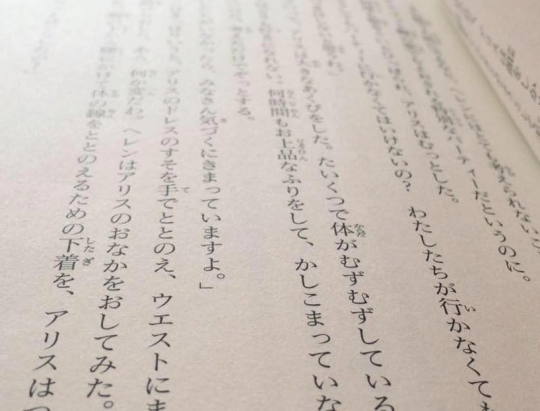
After I finished one chapter, I look up all highlighted words and read the passages that contain these words a second time. This way, I can connect the meaning with the full context. I don't try to memorize the word; I just try to understand it in this particular context before I continue.
Most of the time, I learn words unconsciously. If the book is easy enough, it's not so difficult to guess the meaning of certain words. While reading, I don't focus so much on words I don't know. I just focus on following the story. I may not always understand every detail, but as long as I can follow and enjoy the story, everything is fine. I learn so much by engaging with the language in a meaningful way and enjoying the content. Sometimes, I even forget that I am reading a book in a foreign language!
I have to add, that I'm already familiar with basic sentence patterns and that I have experience with reading books in my target languages. I finished the book "Remembering the Kanji" which makes it easier to guess the meaning of words. Knowing lots of kanji is a great advantage.
I have still a long way to go, of course, but this natural way of learning vocabulary may not work well at very early stages because you need a foundation first. After you are familiar with the dialogues and example sentences in your textbook, graded readers are a good choice in my opinion. Graded readers can make the transition from textbooks to easy books aimed at (young) native speakers easier.
Tip: One thing that helped me is to take a card, write down words I looked up and put this card into the book. When I read it a second time, I don't need to look them up again. Reading texts more than once can help to get more familiar with new words. Plus, writing helps me to remember words better. Reviewing them in their original context is much more enjoyable to me than reviewing them with flashcards. In the picture below you can see how my cards look like:

4. Enjoy!
I made enjoying books my number one priority. This is what helped me to make much more progress than before. All I need is enough reading material at the right level and a dictionary. As soon as I get absorbed in a book, I don't think about learning a language. I just want to enjoy the story. The more experience I gain, the better I become at understanding the language as a result. There's no need to force it or to hurry.
What I like about just enjoying a book and learning words naturally is that it's so simple. I don't necessarily need my computer, a certain software, add-ons, ... All I need is something I can read. After reading a chapter, I only look up a few words as I described above and that's it. Then, I often feel so motivated that I want to read more. I read much more than before because I enjoy it so much.
515 notes
·
View notes
Text
Hello! *shyly waving*
I've had this blog for a lil while and want to start posting original content asap but for now I'll try to make an intro post fisrt.
My blog is running on queue untill I gather some material to post. See you soon!
#studyblr#langblr#studyspo#study inspo#japanese#nihongo#korean#chinese#mandarin#study motivation#study notes#study space#language learning#language#languages#college#academia#student#bookworm#bujoinspo#study blog#study inspiration#study tips#studying#studyblr community#studyinspo#student life#study aesthetic#mine
28 notes
·
View notes
Note
hiii! <3 💕💞
im sure you have been asked this question a lot, so i apologize if its bothersome 🥹, but isnt it hard to study both chinese and japanese at the same time? ive been thinking about picking up on some chinese myself, but i always worry that ill end up confusing some readings of the chinese symbols with the japanese onyomi readings for kanji.
so i guess my question is, how do you manage? 🥺
and good luck for your february goals <333 💞💖🫶🏻
hi hana! どうもありがと, thank you so much 💖 大丈夫, no need to apologize, you're never a bother 🥺 to answer your question... yes, i am always confused 😂
BUT here's where it comes in handy that i'm also learning Korean! Because Korean 🤝 Japanese on phonetics and sentence structure but Chinese 🤝 Japanese on Kanji characters and their semantics!
so i've ended up in a situation where my listening skills for Japanese are better than my reading skills and if there's a Kanji character, then i probably know the meaning, but maybe not the pronunciation in Japanese because what i know from Chinese is overriding it 🤡 i plan to do a lot more Kanji review + Japanese comprehensible input to address this gap 👌
i'm barely at N5 in Japanese though (that's my goal for this year hehe) and i'm coming from the opposite perspective (Chinese > Japanese) than you (Japanese > Chinese), but i hope this is still helpful for you to at least get some ideas for how to tackle your own journey! 頑張ります! 💕
💌 if anyone else with experience learning Japanese + Chinese sees this and has anything to add please do! 🙏
#studyblr#japanese langblr#chinese langblr#korean langblr#asks#친��#study advice#learning languages#langblr#language learning#language study#language stuff#multilingual#polyglot#study tips
18 notes
·
View notes
Text
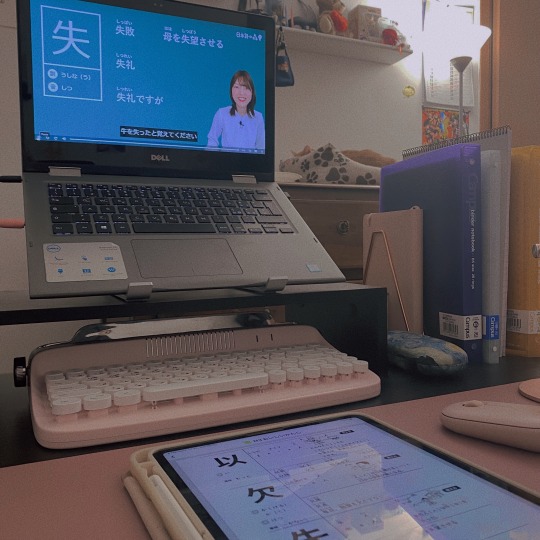
261122
am I finally falling in love with Japanese for the 474829th time? yes, but this time it’s a bit more special because it’s the first time I’m doing it after graduation. I’m free from any academic impediment, free to study my fav language of all times however I want and whenever I wan to. this sense of freedom after 5 (+ 5 of high school when I could only learn Japanese during summer break and with awful resources written for Italian natives) years is just pure bliss.
#studyblr#langblr#languages#study motivation#studyspo#studying#polyglot#language#japanese#languages tips#japanese language#study inspiration#language learning#日本語#日本語のブログ
176 notes
·
View notes
Text
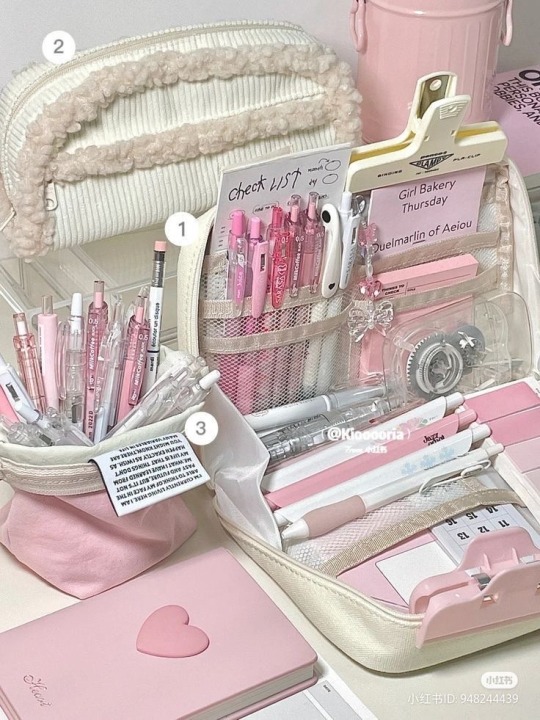


Language Learning Goals 🎀
because I’m just starting out trying to re learn and familiarize myself with the Japanese language again, it was hard for me to think of current goals I might want to achieve, and what time frame I’d want to achieve them in. I think I will begin posting a monthly goals list because as I learn more of the language, my goals are definitely going to change. Right now I have my long term goals for Japanese and then some short term daily/monthly goals!
🌸 Long Term Japanese Goals -
conversational fluency - I want to be able to have comprehensible conversations with native Japanese speakers, and be able to understand what they say and also be able to speak the language myself
understand Japanese media - I want to be able to listen to music and watch Japanese YouTubers and Anime without subtitles
understand spoken/written Japanese - again, I want to be able to know what other people are saying in this beautiful language and also be able to read it to some extent.
My main goals long term are to travel to different parts of Japan in the coming future so being able to speak, understand, and read japanese are my biggest concerns but I’d also like to have that knowledge of writing the characters and knowing proper stroke order too, just for fun and education!
🌸 Daily Japanese Learning Goals -
Use one type of media as a passive learning tool (music, tv shows, YouTube, anime)
Study Flashcards 2-3 times (currently using my hiragana Flashcards I made on Anki)
Minimum of 2 Duolingo lessons
Practice writing the characters in an app (again, currently re learning hiragana)
1 other app lesson used as a supplemental learning tool (renshuu, Bunpo, LingoDeer, drops, etc)
My daily goals are a bit broad as this is typically what I want to do on a day to day basis for about a month of two, and then I will incorporate using textbooks, workbooks, notebooks, and really dive into the self studying and learning more structurally.
🌸 Monthly Japanese Goals (September) -
Memorize hiragana characters
Begin learning basic vocabulary (~30 vocabulary words by end of month)
Begin studying katakana characters (make Flashcards, use apps, etc)
Practicing speaking and pronunciation skills (shadow speak: use YouTube and some tv shows)
Practice realistic listening skills (YouTube videos, tv shows, anime)
Purchase Genki I and Genki II workbook and textbook + Answer Key and chart bundle
Kept a minimum of a 7 - 10 day streak on Duolingo
Joined Japanese club at my university
These are my current goals for the month of September! As the weeks continue, i will assess my progress and build new monthly goals depending on my current progress levels. I’m really excited to be doing this and sharing this journey with everyone. The biggest thing about why I made this blog the way I did was to keep myself accountable for my goals and that is exactly what I plan on doing; reaching my goals!
I so deeply appreciate the encouragement and support you all show me on a consistent basis! It means so much to have this community to keep me accountable and just help keep me on track with my goals but also remind me to be kind to myself! You guys are absolutely amazing <3
Im gonna post a combined daily update for today and yesterday later tonight!
Til next time, lovelies 🩷🤍
***also, wanted to mention, none of the pictures I use are my own!!! I get them from Pinterest but I use them in my posts to keep me motivated to make my space and aesthetic in real life as similar as possible!
#pink pilates girl#pink pilates princess#self care#self development#self love#wonyoungism#health & fitness#it girl#mental health#physical health#language tips#language learning tips#foreign languages#language learning goals#langblr#language learning#languages#learn japanese tips#japanese language learning tips#japanese#language resources#language#study tumblr#college studyblr#college study tips#pink academia#pink blog#pink aesthetic#studyblr community#studyblr
78 notes
·
View notes
Text
When learning a language, I think it’s really inefficient to think about grammar or vocab as “X can be used in A, B, C, and D situations, and it means slightly different things in each situation”. Your brain simply can’t recall all the possibilities quickly enough for this way of thinking to be practical. In reality, out of A, B, C, and D, it probably only gets used commonly in, say, situation A and B. And even then, it’s probably more practical to consider the A and B uses of the grammar/vocab separately, rather than as multiple uses of a single thing. The most egregious example I remembering encountering when I was just starting learning Japanese, was an article about the grammar のだ.

This screenshot is from the Wasabi Online Grammar Reference, which I used when I was starting to learn Japanese seriously, and I think it’s a great resource. However, I think they went a bit overboard on this article with linguistic detail. It’s simply not practical to try to memorise all the possible uses of のだ. The article lists 5 possible functions of のだ:
Expressing Reason
Interpretation
Discovery (Non-Physical Objects)
Summary (Rewording)
Preliminary Remarks
It’s probably linguistically accurate to break it into 5 different categories, and I can see how this categorisation would be valuable to a linguist studing the mechanics of Japanese (an engineer). But to someone whose goal is to communicate in Japanese (a driver), it’s not very useful. I’d break it up into two total functions, like this:
Publicising your internal monologue (i.e. explaining something to yourself out loud)
Explaining a situation you’re both witnessing (one of you may be the cause ofthe situation)
I think putting the use of のだ into these two categories makes it much easier to understand how it’s used. The five categories of the original article were completely overwhelming to me as a language learner, and I honestly think it hindered my understanding of the grammar, because it caused me to make incorrect assumptions about its common use. The article emphasised each category equally when the “explaining something to yourself” use case is overwhelmingly more common, plus it caused me to overthink every time I encountered it in the wild (”which one of those 5 cases is this?… and what were the 5 again?…”).
#japanese#japanese language#japanese langblr#langblr#language learning tip#learning japanese#language acquisition#language learning#日本語#grammar#japanese grammar#jimmy blogthong
107 notes
·
View notes
Text
Limiting ideas my students have worked through
Learning a language can be difficult and most people struggle if they start learning later in life. After 15 years of age the brain starts to lose its ability to learn languages. Even knowing this sometimes we beat ourselves up because we think we aren't doing well. Here's some things my students have said and the response I've given them.
'This is taking so long. I'll never be able to speak English well.'
Me: How long did it take you to learn your first language? 10 to 12 years, right? We don't think about that because we are children. Why would it take any less time now?
'I don't know enough words to say what I mean.'
Me: OK, let's learn more words then. Most aspects of language learning are memorization. Take time to learn 30 words a month in 10 months, you'll have increased your fluency level by at least one level.
'I'm not good at reading/writing/speaking/listening.'
Me: That's normal. How do we fix it? You do more of what you are struggling with until you aren't struggling anymore.
'I keep being bored. How can I learn anything when I can't seem to pay attention?'
Me: Take time to learn about something unusual. For example, learn about a weird animal or new technology. If it keeps your attention, you'll remember and look forward to learning.
'I'm not reaching my goals. How can I be successful?'
Me: Ultimately, learning success comes from one thing: motivation. Extrinsic motivation is having motivation from outside of yourself. This can be getting good grades or completing something for someone else. Intrinsic motivation is the motivation that comes from inside of you. No one can motivate you like you can motivate yourself. The most successful students have a strong intrinsic motivation. They will learn things outside of the classroom and stretch themselves regularly. Find your intrinsic motivation, and you will reach your goals quickly.
15 notes
·
View notes
Text
So I got this app, NHK for school, and it’s wonderful immersion for Japanese learners.
It’s made for school kids. It goes from grade one to middle/high school. (I’m using grade one, personally.)
They have a variety of school subjects. My favourite are the grammar and vocab ones, specifically these guys
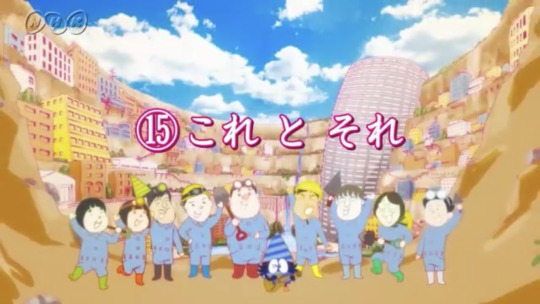
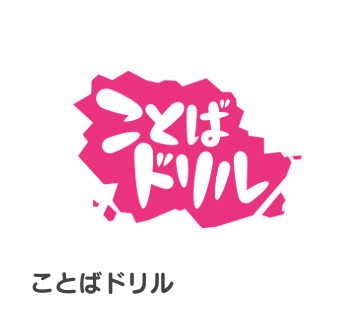
Although I don’t understand a lot of what’s happening (I’m a TOTAL newbie. Only three weeks of Japanese under my belt) the little practice exercises after each section is so helpful!
I’m sure it would be fun for a high level learner as well, and it’s a nice way to get some insight into what kind of stuff Japanese children are taught, ahaha.
#langblr#Japanese langlr#learn Japanese#japanese resources#free Japanese resources#japanese langblr#language learning#language tips#japanese#language resources#learning japanese#Japanese tips#NHK#NHK for school#quinn talks
433 notes
·
View notes
Note
Hi Vincent! Since you're studying Japanese & Korean, I was wondering if there are any major differences in the way you approach studying each language? Especially since you are laddering Japanese and Korean.
Any helpful hints you've picked up on the way would be great too! ありがとう!
Oohhhh... This is a good question...
I think in terms of grammar I approach them similarly, by memorizing grammar by its function rather than by how it's translated, but when I review grammar I try to review my Korean by comparing to equivalent Japanese grammar. They're a lot easier to compare than either one with English, so it's easier since the word order is often the same and stuff.
But with Korean I think I use a lot more learning apps? Although that's mostly because the Korean resources around me aren't as plentiful as Japanese ones, so I can't get my hands on as much native reading material and stuff to practice. (And I'm not huge on k-dramas, haha)
Oh, another thing with my experience with Korean is that my learning community for it is much smaller- I couldn't really click with a lot of my classmates in Korean the same way I could with my classmates in Japanese (and there was one person in my Korean class who was kind of... A creep so I sort of avoided socializing in there in general), so a lot of my Korean learning is more independent. I won't lie that specific person being so like, uncomfortable to be around kinda killed my motivation to study Korean for a little while, so I really had to improve my internal motivations for studying to make sure I didn't give up.
In terms of tips and tricks I have, one thing I've made a habit of doing is writing down the equivalent Japanese grammar point next to each Korean grammar point in my textbooks! I'll write down conjugations with the same meanings, particles with the same meanings, and sometimes also phrases or vocab terms in Japanese next to the Korean headings and try to memorize based on that. It's usually pretty easy to do, honestly, since the English language textbooks I use for both languages describe things very similarly!
Also, I try to cut out English as much as possible when I learn new words in Korean! Like, I have the Learn Korean With BTS book, and in that the new vocab is only written in Korean, and then if I can't guess the word's meaning from the illustration they put with it, I'll listen to the audio translation in Japanese. I only use English if I'm totally lost because I don't know the word in either language and the illustration is confusing.
Hmm... Another tip I think is important is to not beat yourself up if you aren't "fully laddering" or something like that. If you sometimes have to go back to your native language to double check something, that's fine! It doesn't cancel out all the laddering if you have to go back sometimes to make sure you're actually understanding.
You can also usually find what textbooks Japanese universities use for their Korean language classes! I know Waseda puts all of their textbooks up on their class search and that's publicly available to look at, so you can go find whatever level of Korean textbook written in Japanese with Japanese explanations if you're advanced enough in Japanese!
I feel like laddering is pretty similar to immersion study in the sense that they can both feel pretty difficult and high-intensity even when you're just doing something basic. Completely getting rid of your native language makes things a lot more stressful, I think, so it can be harder. Even if you know that for you personally laddering will be a better way to learn it or more efficient or whatever, it can still feel kinda overwhelming to suddenly be trying to avoid your native language when you study, and I think it's important to remember that! Because sometimes it'll feel discouraging to be overwhelmed by "super basic stuff", but the way you're studying is more intense than studying using native language textbooks! So feeling overwhelmed by stuff you'd find "easy" in your native language is fine! Because it isn't your native language!
I dunno, I don't have many life hacks for it yet... But I hope this blurb helps somehow anyway!
#original post#ask#my korean classes themselves are also a lot faster paced#which i think influences how well im taking in korean#we go through multiple grammar points a day#so its more difficult to keep up#langblr#study advice#study tips#language learning#language laddering#studyblr#japanese#korean#motivation
39 notes
·
View notes